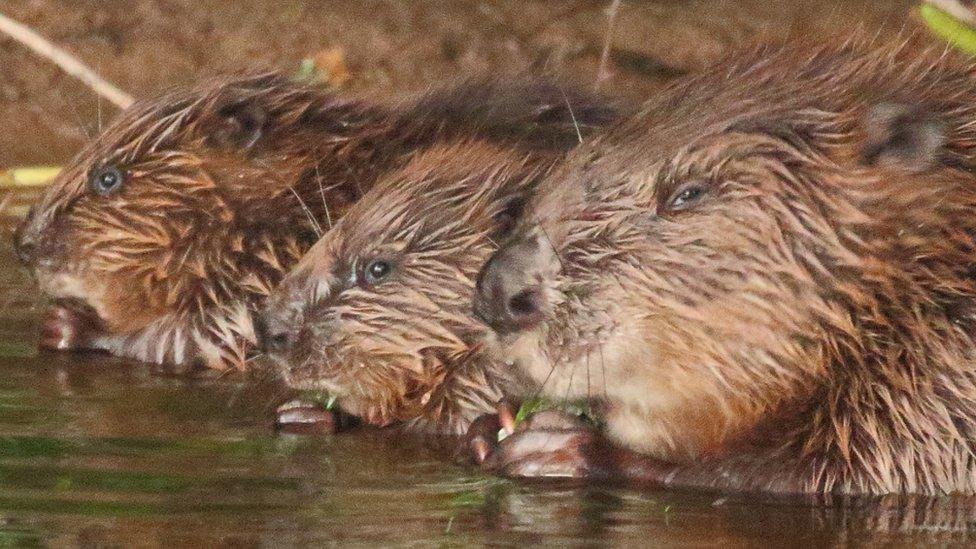First National Trust released beavers 'doing well'
- Published
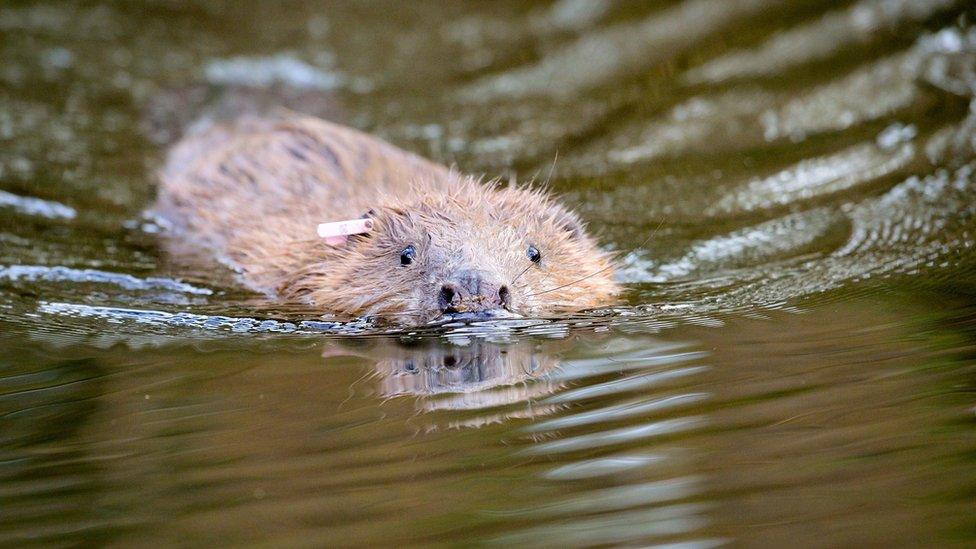
The beavers were released onto Holnicote Estate in Exmoor at the end of January
The first beavers released back into the wild by the National Trust are "doing well", the trust has said.
The animals were released on the Holnicote Estate in Somerset in January to restore streams and reduce flooding.
Project manager Ben Eardley described the project as "exciting" said there were "lots of signs of feeding".
Beavers became extinct in mainland Britain in the 16th Century when they were hunted for their fur, meat and scent glands.
The Eurasian beavers were relocated to the Exmoor estate from wild populations on the River Tay in Scotland at the end of January, as part of the trust's £10m Riverlands project to "bring UK rivers back to life".
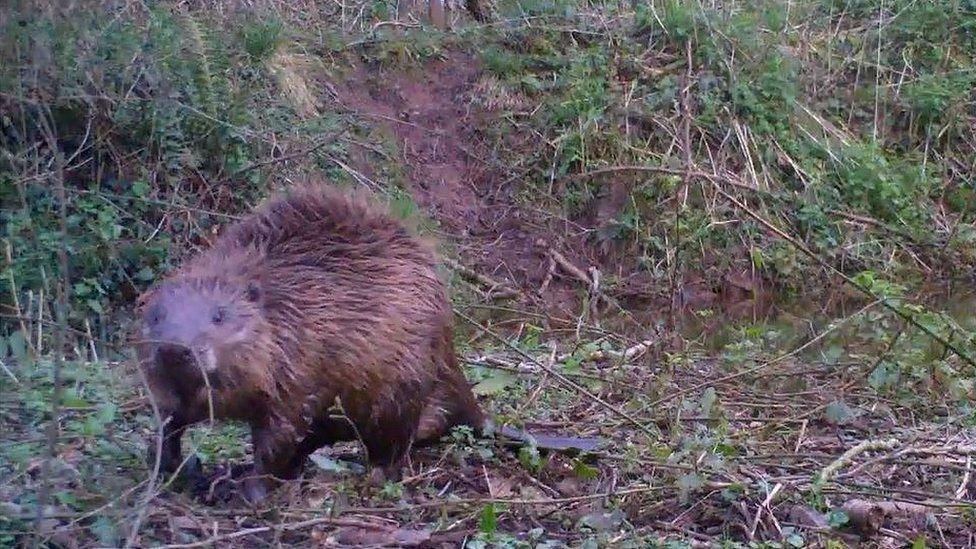
The Eurasian beavers were relocated to the Exmoor estate from wild populations on the River Tay in Scotland
Since their release, the animals have been caught on webcams "doing well", feeding, grooming and creating deeper and more extensive ponds in one of the site's fast-flowing rivers.
One pair had "created a larder" and dragged "woody vegetation into the ponds", according to project manager Mr Eardley.
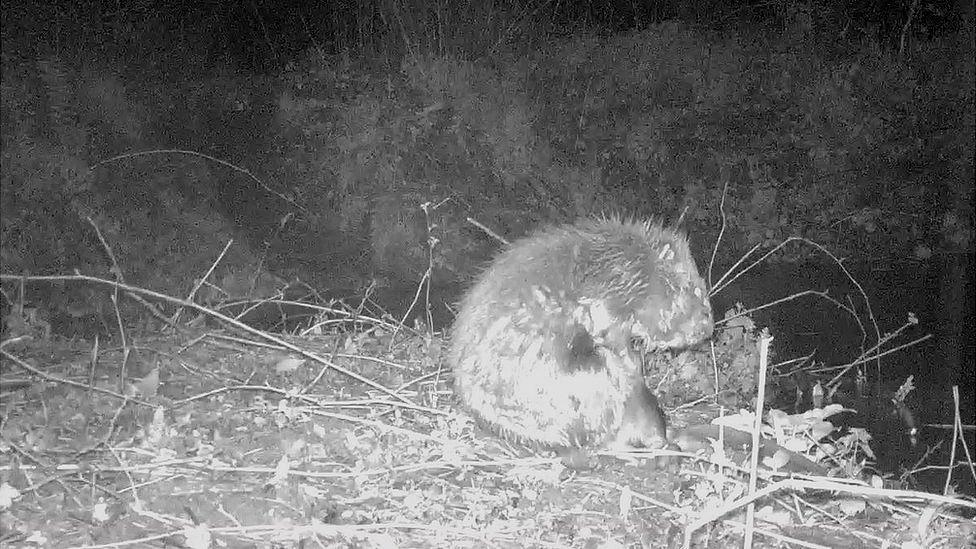
The animals have been caught on webcams feeding and grooming and "doing well"
"There are lots of signs of feeding at the fast-flowing site... it's exciting," said Mr Eardley.
"Beavers... are a tool to create a greater richness of wildlife, more diversity, more complexity and help improve the natural function of the river catchment."
The trust is working with Exeter University to monitor the impact of the rodents and document how the habitat changes.
In recent years, beavers have been released at a handful of sites across the country and can be found living wild on the River Otter in Devon.
- Published30 January 2020
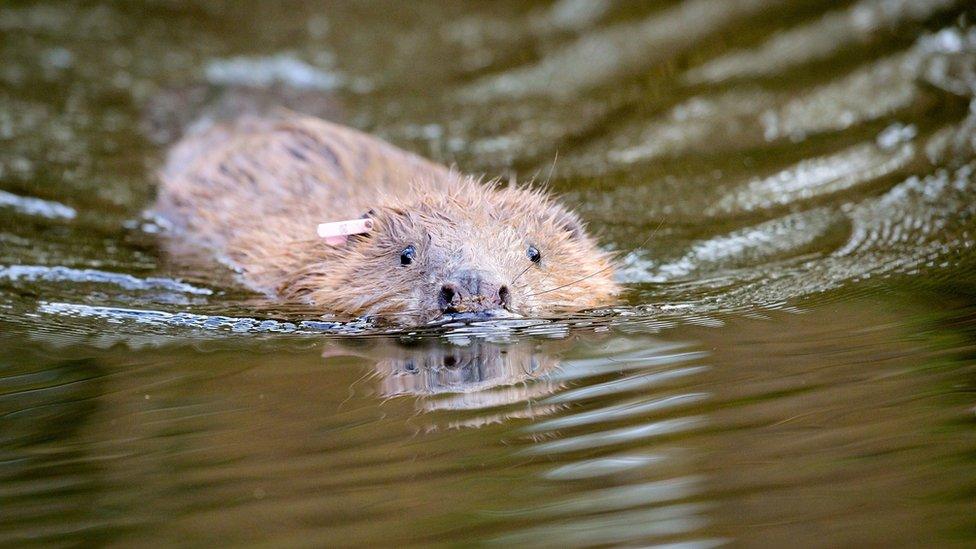
- Published20 November 2019
